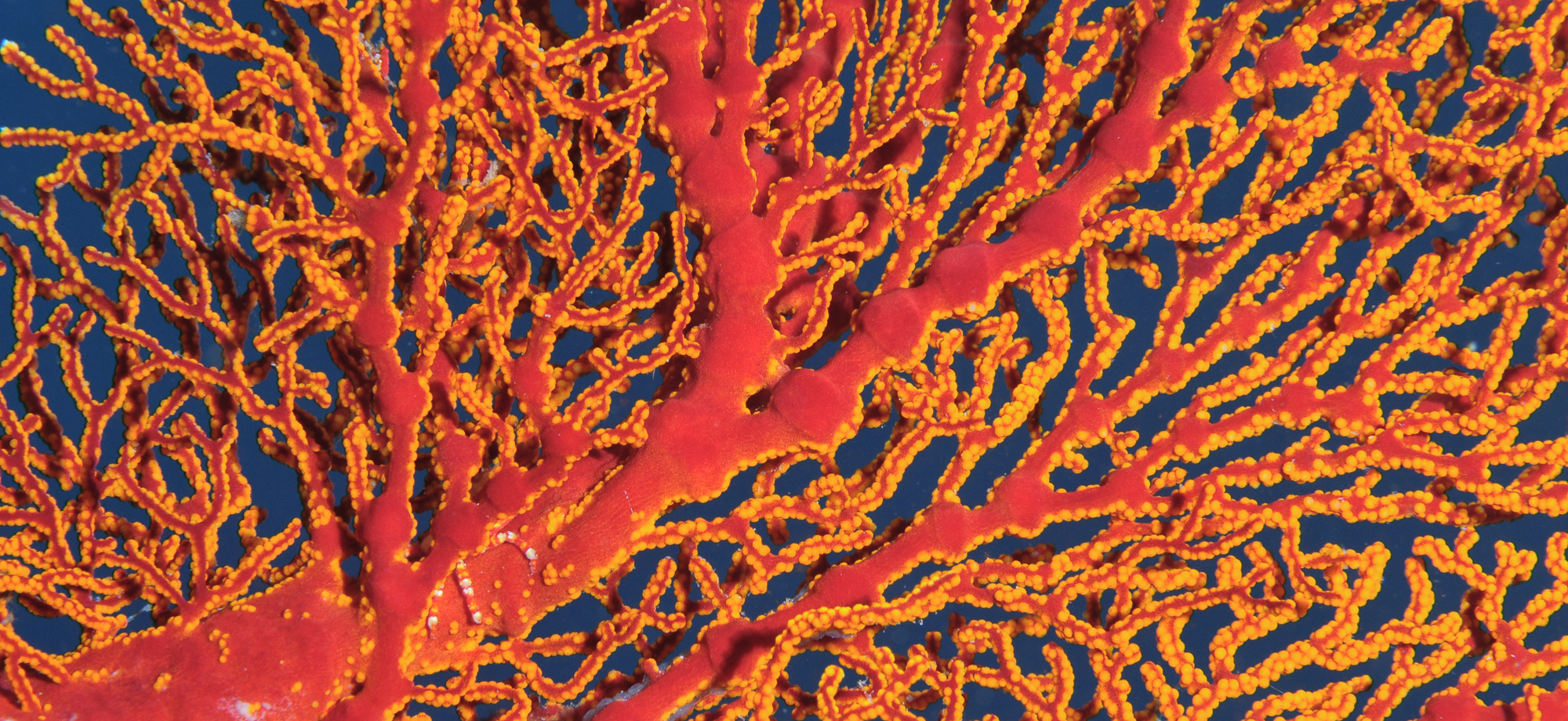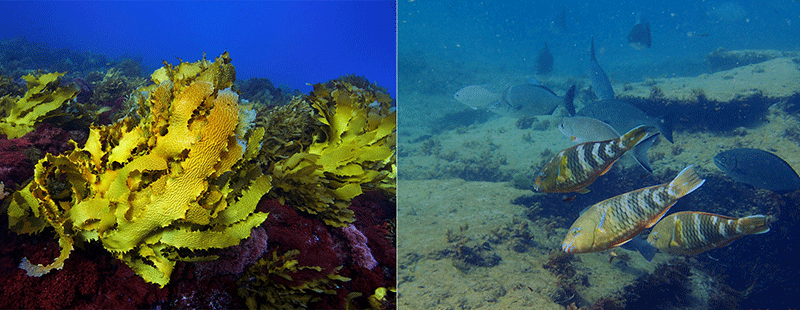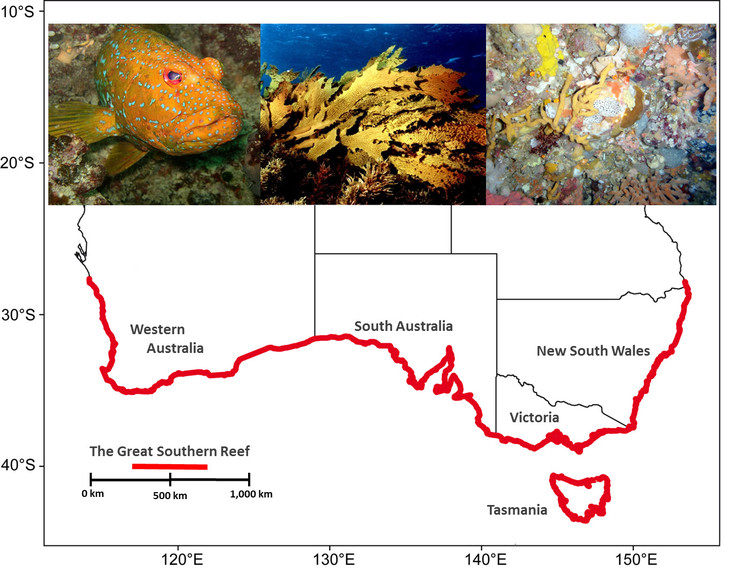New research has emerged suggesting a complex interplay between increasing sea surface temperatures, extreme marine heatwaves and the collapse of kelp forest communities located along Australia’s west coast.
In a collaborative 15-year study across 2,000 kilometres of coastline, researchers have found an apparent extinction of these highly valuable ocean forests along a 100 km stretch. The marine heatwave observed in 2011, appears to be the tipping point that has driven a community-wide shift from temperate kelp forests to one dominated by tropical algae, fish and coral.
Before and after the 2011 heatwave which saw the virtual extinction of some of Western Australia’s vast temperate kelp forest ecosystems. Grazing tropical and sub-tropical fishes which use their teeth to scrape the reef substrate leave little chance for new kelp to re-establish and there has been no sign of recovery 5 years after the heatwave event. Image: J.Costa
“Five years on from the devastating heatwave event and we have witnessed no signs of kelp forest recovery. Instead, we have observed a 400% increase in herbivorous fish biomass characteristic of tropical coral reefs, resulting in a complete reconfiguration of this unique marine ecosystem,” said Dr Martial Depczynski, scientist at the Australian Institute of Marine Science (AIMS).
“And, this new kelp-free state looks like it may be here to stay,” he added.
The loss of kelp forests in this region comes at a considerable cost, not only to the natural ecological value, but also in terms of potential social and economic losses against current estimates of the regions fisheries and reef-related tourism valued at more than $10 billion AUD per year.
The Great Southern Reef (GSR) straddles five states across the southern coastline of the Australian continent. Kelp forests (middle) are a defining feature of the GSR. The reef is home to some of the most unique temperate marine organisms in the world, such as the endemic harlequin fish (left) and myriad invertebrates (right). Images: © T. Wernberg
The paper “Climate-driven regime shift of a temperate marine ecosystem” was published today in the prestigious journal Science and is a collaborative effort between the University of Western Australia, AIMS, CSIRO, Western Australian Museum, WA’s Department of Parks and Wildlife, Curtin University, Australian National University and several international research partners.
For more information, please contact:
Dr Martial Depczynski
Fish Ecologist
Australian Institute of Marine Science - Perth
M: 0448 140 787



